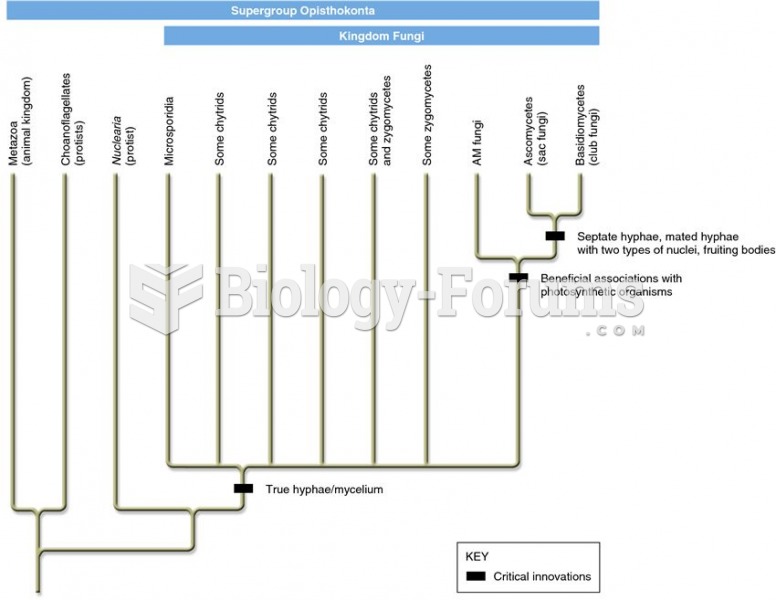|
|
|
Addicts to opiates often avoid treatment because they are afraid of withdrawal. Though unpleasant, with proper management, withdrawal is rarely fatal and passes relatively quickly.
Approximately 500,000 babies are born each year in the United States to teenage mothers.
Cancer has been around as long as humankind, but only in the second half of the twentieth century did the number of cancer cases explode.
Thyroid conditions cause a higher risk of fibromyalgia and chronic fatigue syndrome.
Acute bronchitis is an inflammation of the breathing tubes (bronchi), which causes increased mucus production and other changes. It is usually caused by bacteria or viruses, can be serious in people who have pulmonary or cardiac diseases, and can lead to pneumonia.







